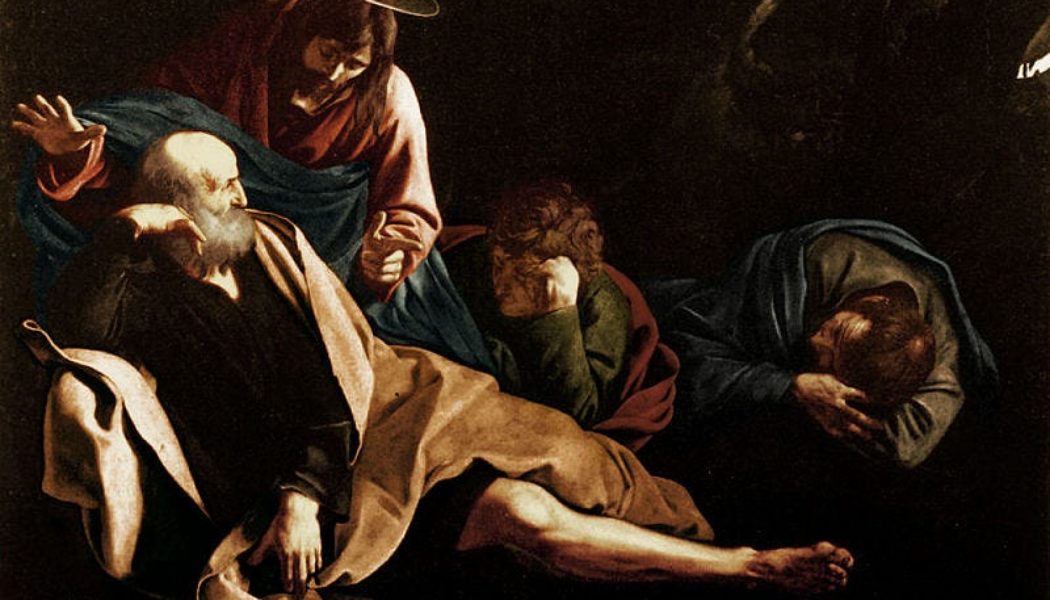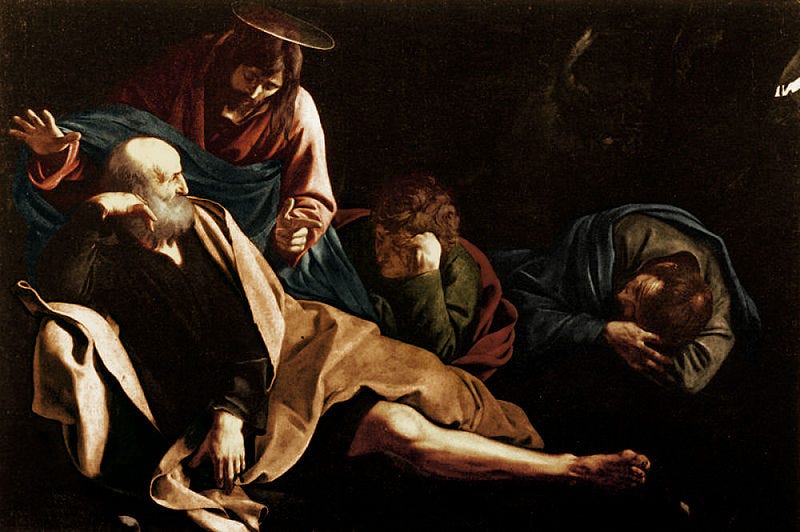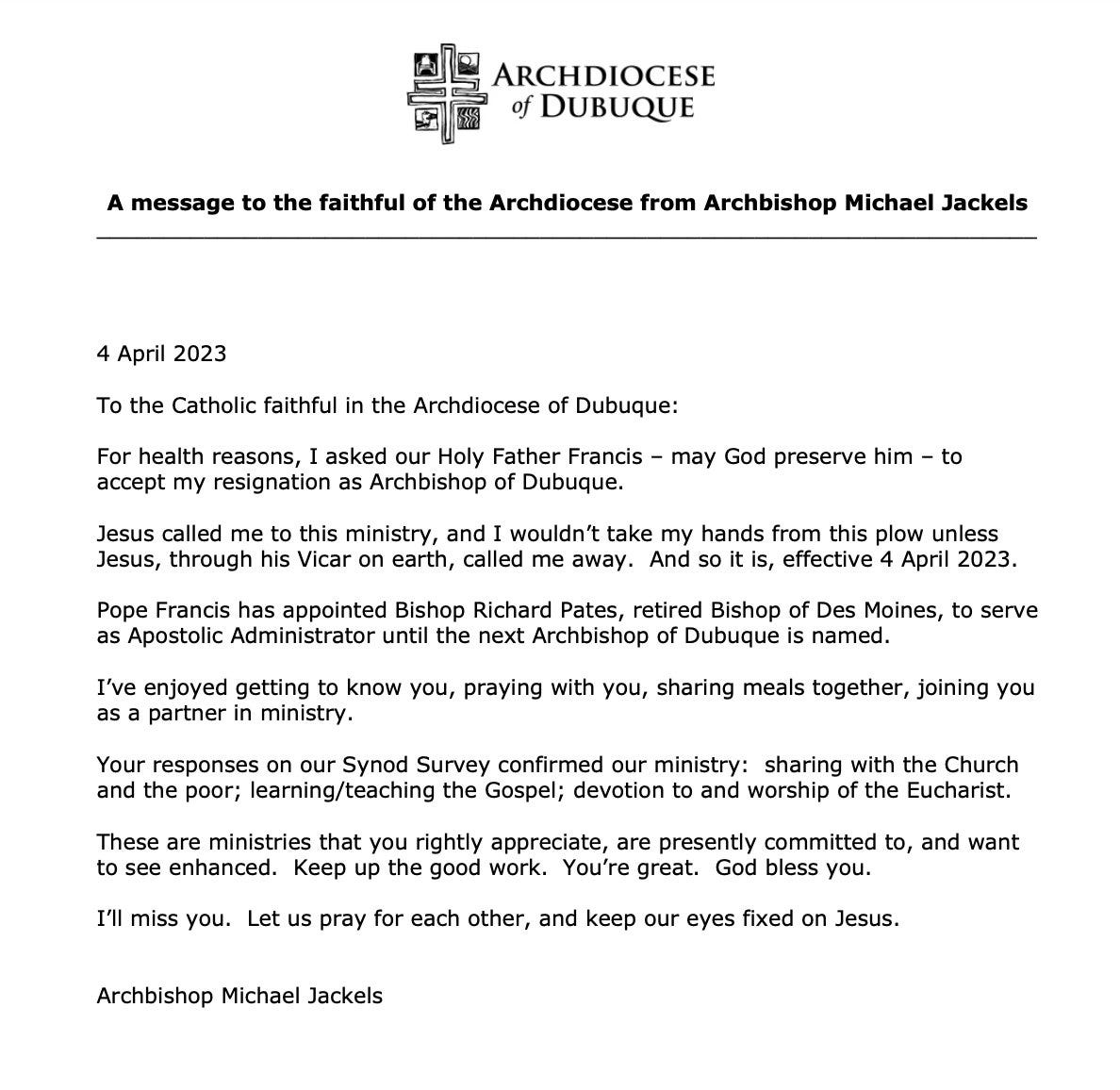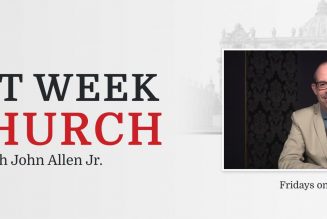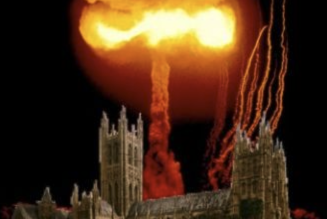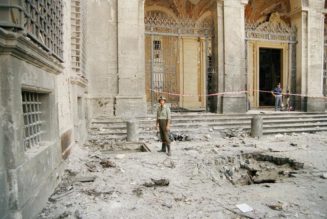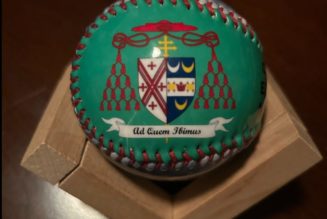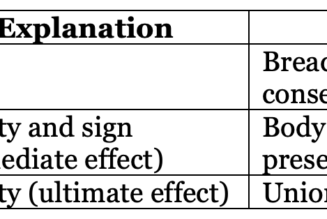Hey everybody,
It’s Holy Week.
I was looking back this morning on Lent — on my plans for Lenten sacrifices, and the ways in which I failed to embrace them as I’d hoped. If you’re anything like me, this might be a tendency of yours too, in the early days of Holy Week.
Of course, Lent never really goes as planned — and I have a tendency to focus there, to find myself carrying regret in Holy Week for the fasting, prayer, and almsgiving that didn’t quite land as concretely as I’d hoped.
But I’m trying to take a different tack this year, too. In a kind of examination of Lent, I’m trying to look most especially for the places where the Lord did show up, with graces that I didn’t anticipate.
I’m most struck by the gift of our nightly family rosary during Lent — not because we merely “got through it,” as I expected would be the case, but because my kids have taken to it. I didn’t expect at the start of Lent that by the end they’d look forward to family rosary, but they do — and not because of anything I’ve done.
That’s a grace, and one I didn’t see coming — really, the best kind.
I don’t know. What I’m saying is not especially profound, but for me, it’s been the most important lesson of this Lent: Jesus shows up.
The Lord shows up in our lives, sometimes in the ways we expect, and sometimes in ways we don’t expect. He shows up. He makes things new. He loves us, and the people around us, in ways that bring new life.
The liturgies of Holy Week point us to this: “When we were baptized in Christ Jesus we were baptized in his death; in other words, when we were baptized we went into the tomb with him and joined him in death, so that as Christ was raised from the dead by the Father’s glory, we too might live a new life.”
Christ calls us to a new life in the glory of the Father, and then he shows up to make it happen. We can delude ourselves into imagining that we’re the protagonists of our own Christian lives — for better or worse — but we’re not.
He’s the protagonist of history, and the protagonist of our salvation. Our job is to see his grace, to cooperate, to receive and respond — not to stand in his way.
And first, I think, to ask him to show us where he’s showing up in our lives, and to praise him for that presence.
—
The news
If you haven’t read it, open right now this interview published on Saturday, with Norway’s Bishop Erik Varden, who talked with The Pillar about the spirituality of Holy Week — walking through each day with insight and spiritual guidance.
Here’s a sample, with insight on Good Friday:
“We contemplate [the Cross] first as an instrument of death, a demeaning object of torture; then as the symbol of victory. The transition is made when, after the reading of the Passion, the cross is carried onto the sanctuary in solemn procession and we kneel before it singing the Hagios: “Holy God, holy immortal, holy and strong, have mercy on us.”
We are part, then, of an enacted paradigm shift, enabled to glimpse the truth of what St. John speaks of — that the Cross, whose torment is unbearably present, is nonetheless an epiphany of glory. Faced with these realities, we cannot say much. But if we enter fully into the rite, our eyes, outward and inward, are opened.”
—
Next, we published this week an interview with a Nicaraguan priest, who was held last year, under house arrest with Bishop Rolando Álvarez, and then detained for six months El Chipote, a notorious Nicaraguan prison where torture is believed to be commonplace.
The priest — whose name we didn’t use, to protect his family in Nicaragua — was eventually exiled to the United States.
And he agreed last week to talk with The Pillar about his experiences — the suffering he endured, for the sake of the cross, and the unexpected graces which carried him through:
“The only thing that allowed us to be calm and full of strength was to meditate on the holy rosary.
One day, it occurred to me to make a one-decade rosary with some cloth wipes they gave us. I stretched it and stretched it and made the beads, first the Our Father, then the 10 Hail Marys and then the Cross.
The seminarians and the other priests made them too.
But we had to hide those rosaries inside the toilet paper, because if they checked and found them, that was grounds for punishment. More than once they searched a cell and found a little rosary. Then we would make another one in the same way.”
Here’s more:
“Once my sister visited me, and she came with an N95 mask in her hand and gave it to me.
I told her that she couldn’t give me that, that they didn’t allow masks there. But she insisted, and told me to look at what was inside. I saw that inside there was a closed white cloth.
I opened it and there was the body of Christ — the Eucharist.
As I could, half-hidden, I received Holy Communion and I felt immensely happy.
I got to the cell and told the others and everyone said ‘Jesus is with us, Jesus is with us’ and we embraced each other and prayed with great joy together.”
This is not the story of Christian persecution from some long ago time, in the hazy and distant past of prior generations. This is a story of a priest who suffered prison, torture, and exile for the faith this year, just months ago.
In fact, he was freed only a few weeks before Lent started. And he is now praying for the Christians in his country:
“We must not lose hope. The Lord will help us, like the people of Israel in the Exodus. They never lost hope. They suffered a lot, but in the end, they were free.”
—
And here’s another story I urge that you pray with.
Pope Francis met last month with two Nigerian women, both of whom had been held captive by the Boko Haram terrorist network. One woman was kidnapped when she was 14, and spent 18 months with her mother in Boko Haram captivity. The other was kidnapped when she was eight, and escaped after almost nine years of illegal captivity.
Both women spoke with Fr. Justine Dyikuk, The Pillar’s Nigerian correspondent, about their experiences, and the opportunity to meet Pope Francis.
Read their extraordinary stories here.
—
A decree promulgated March 30, and approved by the Vatican, prohibits Polish clerics from using social media accounts that don’t clearly identify them as clerics, and aims to set rules for how they conduct themselves online.
“Although the presence of clergy, consecrated persons, and members of societies of apostolic life in the media, especially social media, is often their private activity, they are always seen as representatives of the Church,” the Polish bishops said.
Personally, I’m not sure what to think about this. Clergy are people, and they use social media platforms like Instagram, Twitter, or Facebook, like regular people do. In fact, clergy I know use them often to build friendships, because they’re often isolated from other clerics in far-flung assignments. That strikes me as a very good thing. On the other hand, it is no surprise that bishops want to better regulate the online conduct of clerics, given the possibility it has for causing scandal, at the very least.
So, as I said, I’m not sure what I think about all this. And I doubt very much that U.S. bishops would be keen to implement rules as comprehensive as this — because once you make the rules, you assume the responsibility for being sure that they’re followed.
Anyway, you can read about the Polish bishops’ decision here.
—
The doctrine of discovery, by the way, is a “legal doctrine,” not doctrine in the sense of having been a teaching of the Church.
But the notion that European powers had the right to colonize “new lands,” and subjugate their inhabitants to perpetual servitude — slavery — is generally attributed to papal bulls of the 15th century, which, to address emerging wars between European powers over the colonization of other parts of the world, permitted the legal rights to trade, colonization, and servitude in different areas to the crowns of Spain and Portugal.
Last week, the Holy See said those decisions “did not adequately reflect the equal dignity and rights of Indigenous peoples” and are “not part of the teaching of the Catholic Church.”
So what’s the history here? What does all this mean? The Pillar explains.
—
The Vatican this morning accepted the resignation of Archbishop Michael Jackels of Dubuque, Iowa, who said that he had resigned for health reasons.
The archbishop, 68, had a heart attack in 2019 and cardiac surgery thereafter. Some sources have told me that Jackels did not regain his energy after that heart attack, and that the bishop has faced other struggles since.
While the Holy See has demonstrated of late something of a penchant for allowing bishops to resign for “health reasons” when other circumstances are operative, The Pillar has seen no indication of such an issue in Jackels’s case.
But Jackels’ resignation does create a vacant metropolitan see, well ahead of the expected time of vacancy for Dubuque — and with a spate of U.S. archbishops due to turn 75 in the next year, or who are already past that retirement date.
Six U.S. archbishops will have a 75th birthday by next April, and two — Cardinals Sean O’Malley and Wilton Gregory — are already past that date.
The vacancies, of course, will be filled through the influence of Cardinals Blase Cupich and Joseph Tobin, both of whom are members of the congregation for bishops. While those appointments won’t change the overall makeup of the U.S. bishops’ conference very much, they might well change the theological mindset of the country’s metropolitan archbishops, taken in the aggregate.
Last year, Ed and I opined that as the makeup of the metropolitans changes, Cardinal Cupich and Tobin, through the Congregation for Bishops, may well urge that metropolitan archbishops are more often consulted by the Vatican, rather than the whole of the bishops’ conference, on matters of disagreement among the bishops.
Anyway, some of you have already reached out to ask me how it is that Dubuque, Iowa, pop. 59,119, became a metropolitan see, with a metropolitan archbishop, rather than a larger Iowa city, like Des Moines.
The answer is interesting.
In the early decades of the 1800s, the area surrounding Dubuque was lousy with lead mining. Lead mines attracted American immigrants, like the Irish, Germans, and Bohemians, who were looking for work.
Those immigrants were mostly Catholics, and so the little town of Dubuque became a pretty Catholic place.
As the lead mines were exhausted, other industries picked up: timber, brewing, iron, and railroading.
A diocese was set up in the 1830s, and the Catholic population continued to grow. In 1870 and 1880, Dubuque was the second-largest city in Iowa, with a large population of Catholics and it had a growing Catholic infrastructure, including the growing New Melleray Abbey of monks.
If you’d asked a demographer in the 1860s or 1870s, they’d have told you that Dubuque would continue growing into a large and important industrial center — which is how it ended up becoming a metropolitan see in 1893.
But while Dubuque was still a big deal, another Iowa city started picking up a lot of steam in the 1880s — Des Moines.
Des Moines, in the 1860s, had started mining a little bit of coal. In the early 1880s, Des Moines started mining a lot of coal — which means that immigrants flooded the city looking for work.
Between 1880 and 1890, Des Moines’ population more than doubled, and because it built an industrial infrastructure, the city kept growing even after coal had petered out by the 1910s.
Des Moines became, and remained, Iowa’s principal city, while the population of Dubuque grew only slowly in the 20th century.
But from an ecclesiastical point of view, Dubuque was a growing city at exactly the moment when it counted — when Iowa and points west needed more dioceses and a metropolitan see, and when Des Moines was not yet big enough for a pallium.
—
Call the chancery
If you work in a parish or a diocesan chancery, this week is one of the busiest of your year — it may well include Chrism Mass, alongside preparations for the solemn, beautiful, and ample liturgies of the Sacred Triduum. Be assured of our prayers. And try to take some time off next week.
And if you’ll indulge me, I’d like to offer pastors one bit of canonical advice — Father Pastor has the faculty by the law itself to confirm validly both catechumens and baptized non-Catholics (Protestants) whom he receives into the Church.
But some parishes have the custom of confirming also at the Easter Vigil adult Catholics who, for whatever reason, were not confirmed in their youth. Father Pastor — you do not have the faculty to validly confirm such Catholics unless the bishop gives it to you. Some dioceses give this in a broad and proactive manner, but not all — so if you’re planning to confirm at Easter people who are already baptized Catholics, call the chancery and double check.
Every canonist can tell you stories about Father Pastor forgetting to get confirmation faculties for the confirmation of Catholics — and thus performing the rite invalidly. Call the chancery.
Also, longtime readers of The Pillar know that I wait all year to listen to the Exsultet, the beautiful Easter Vigil proclamation of the Resurrection, and its meaning.
Here, I share the Exsultet with you proclaimed in Igbo, the language of many of Nigeria’s Christians:
It’s beautiful.
—
And finally, balloons are back in the news.
To no one’s surprise, U.S. government officials say they can’t confirm that, and that the balloons offered little value to the Chinese, given the spy satellites they already have.
China insists the spy balloons didn’t even belong to the Chinese government.
I love the American response to this balloon issue:
“Well, listen,” the federal government is basically saying, “these guys have some super-powerful satellites in low earth orbit, so it’s not really a big deal if they also had balloons livestreaming military intelligence.”
No one should be surprised that China has such powerful satellites, or imagine that the U.S. doesn’t have the same. That’s what it means to be a superpower at least.
But it is cause for concern that a foreign power can send balloons around the globe to do figure-eights over Montana livestreaming signal intercepts over rural bases where we stick some of our superweapons.
Whether it’s the Chinese government, the Chinese Communist Party, or some Chinese company, well, you’d think most Americans would be concerned about that kind of spying.
Except Americans aren’t.
Because even the people panicking about the balloons are expressing their distress by taking out their phones and recording TikToks about their horror over Chinese spying.
Isn’t that ironic?
Last year, the FBI called TikTok, owned by Chinese media company ByteDance, a national security threat.
An FCC commissioner maintains that “at its core, TikTok functions as a sophisticated surveillance tool that harvests extensive amounts of personal and sensitive data,” seemingly for use by a foreign power, or by its surrogate.
This week Australia joined several countries, including the U.S., in banning TikTok from government-owned devices, precisely because the app is a national security threat.
Congressional committees have called on the Biden administration to impose a broad-reaching ban on TikTok in the U.S.
But the app remains enormously popular.
People love making and watching short videos — of people dancing in their workplaces, eating extremely spicy chips, or giving cringy wedding vows.
People even love making videos just to talk about videos about cringy wedding vows. It’s a whole subculture, believe it or not, heavy on mutual excommunication of “all the haters out there.”
In fact, if there’s one thing everyone agrees about on TikTok, it’s “death to haters,” whomever they may be.
I don’t want to burst the balloon here, but I have a theory.
Is it possible that China floated a real-time spy balloon across the U.S. to convince us that balloons are the real problem, not the data-harvesting devices we carry in our pockets? Is it possible that every time someone TikToks a spy balloon reax video, they’re taking the bait on an elaborate psyop designed to make us more comfortable with TikTok?
I’m not saying that’s definitely the case — but if you’re a foreign power, which would you rather have — a very, very cool spy balloon, or instant and constant access to what hundreds of millions of people are thinking, buying, watching, and “liking?”
Which one could you use for better intelligence-gathering?
Maybe I’m wrong and TikTok’s innocuous. Maybe the (very, very cool) balloons really are the best that China can come up with.
But I doubt it. And I guess we’ll find out soon enough.
Tick tock, my friends. Tick tock.
—
Before I close, I want to ask your prayers for my parents. Forty-one years ago today, they promised to love each other until death do them part — and they’ve kept that promise.
Much later, with my mom converting to Catholicism and God moving in our family’s life, my parents convalidated their marriage in a Pittsburgh parish, and I had the blessing of standing as my dad’s best man. It was an honor.
But that first commitment, on April 4, 1982, was a pledge to each other that they’ve kept, and which has formed the foundation of our family. I’m blessed with extraordinary parents, who have given me great gifts, and continue to love me, and my wife, and my children. If you would, please say a prayer for them.
Be assured of my prayers during the Sacred Triduum. Our news coverage will slow — considerably — during the Triduum, and even during Easter Week. But we’ll keep The Pillar Posts up, and we’ll keep you up-to-date.
And if you want to put a subscription in our Easter Basket, well, that’ll help us buy some Reeses’ Peanut Butter Eggs, the greatest of all Easter candies.
Please be assured of our prayers, and please pray for us. We need it.
Blessed Triduum.
In Christ,
JD Flynn
editor-in-chief
The Pillar
Comments 12
Services Marketplace – Listings, Bookings & Reviews
